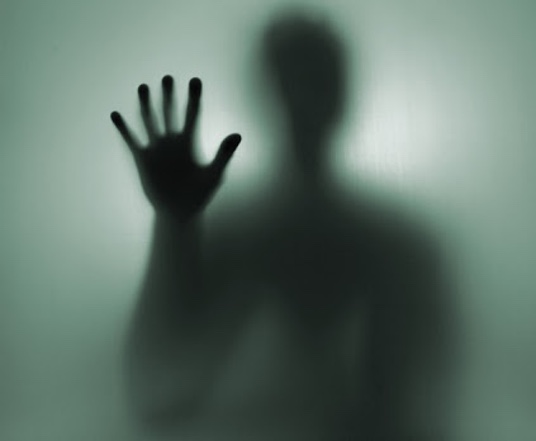
The narrator of Ralph Ellison’s award-winning 1952 novel Invisible Man begins telling his story with the claim that he is an “invisible man.” His invisibility, he posits, is not truly a physical condition — he’s not literally invisible — but rather, it’s the result of the refusal of whites to actually “see” him.
All sentient blacks that have functioned in the wider — white — world have had this experience at one time or another. We all (due to our pigmentation) have occasionally been rendered “invisible.” For me personally it hadn’t occurred in a number of years since I know how to avoid such situations.
The last time it happened to me (until the other night) was in a sandwich shop on the outskirts of Toledo almost a decade ago. I was in a part of town I was unfamiliar with.
I stopped in to order a sandwich and the young white woman behind the counter simply stood there and looked at me, almost wide-eyed, and said nothing. I waited for her to ask if she could help me — which is customary — but she simply stared. Finally I said, “I’d like to order a sandwich.” But still, she simply stood there and stared.
Eventually a white guy came over and gruffly asked me, “What do you want?” The message was clear: This white woman was not about to serve a black man and the white man made it clear they didn’t want my money. “Nothing,” I spat out as I turned to leave, with blood anger rushing up from my body to my face. Lesson learned — once again — don’t go where you’re not wanted. America still can be a bitch for black folk.
Nonetheless, the other evening I found myself — surprise — again in a similar situation. I’d written a short piece for a book on Cleveland neighborhoods (focusing on my community of Hough, what else?) and was invited by the wonderful woman editor to read it at a gathering designed to promote the book.
Immediately upon entering Packy Malley’s on Waterloo in Collinwood, my antenna went up. Save for a very petite black woman (who looked to be 12 years old and seemed surprised to see me), the entire crowd was as white as the Oscar nominations.
However, since I possess a degree of self-confidence that some would say borders on arrogance (I’ll crash a Ku Klux Klan rally and ask, “What’s up?” if it suited my purpose), and besides, I had given my word to the woman who had extended the invitation. I told the woman at the door why I was there and found a seat at the end of the bar to await my turn to read. That’s when I became invisible.
The bartender, who was less than five feet away and wasn’t waiting on another customer, saw me sit down on the stool and immediately walked to the other end of the bar. He came back past me two or three times, and still refused to acknowledge that I was there, that I was a human being. I attempted to catch the eye of another bartender working down the bar and he looked me dead in the eyes and then sneeringly looked away.
You see, I was invisible.
I’m thinking, “Who needs this shit?” as I prepared to get up and leave. Just then the woman who had invited me came over and I began explaining to her that, while I prefer to keep my word, this just wasn’t worth it for me. The days of sit-ins to prove that I’m worthy of being waited on — at least for me — passed decades ago. I no more wanted to be in this joint than the bartenders wanted me to be there. I was more than ready to get the hell out of there and back into my comfort zone, which was anywhere other than where I was.
Just then, a barmaid, seeing the other white woman speaking to me, came over and somewhat cheerfully took my order for a beer. And then a photographer I’d met about a month ago came over and wanted to chat about something I had written about the Republicans. Thus, somewhat comforted, I stayed.
After my turn on the mic a trio of young white women immediately took mercy or pity on me (I don’t know which, or maybe they were just truly non-racist and were curious) and invited me over for a beer while they questioned me about the vineyard I’d just spoken about. They were excited about coming to visit.
And to be honest, most young whites I meet are like these three — they live above the color line. I only wish their lack of any trace of racism could make up for the hurtful bigotry of other whites. Alas, in the end, it really doesn’t. Unreasoned prejudice still hurts, and who wants to willingly be hurt?
It was then that I finally looked around the bar. Prominently displayed on one wall was a huge poster of Bob Marley; on another was a painting of Louis Armstrong; on yet another was an even larger poster of the “Godfather of Soul” James Brown; and then I saw the advertising poster of the bare-chested, brown-skinned beauty emerging from the ocean with the word “JAMAICA” strategically emblazoned to hide her charms. What the fuck was up?
Then it hit me why I was vaguely familiar with the name “Packy Malley”: for a number of years they put on a reggae fest somewhere out east (maybe they still do) — reggae being the indigenous music of Jamaica, mon. By now I’m even more confused.
After leaving the bar I was able to sort it out, and here’s my take: These white folks are in love with a form of black music and culture enough to steal it and make it their own, just as long as there are no black folks coming into their watering hole and ordering a beer. I wonder how they would have treated Bob Marley if he had all of a sudden walked in?
In the end it’s a deal: The folks who work there don’t want me — and I have to assume other blacks — patronizing the place, and for my part they damn sure don’t have to worry about me bringing my black ass back. As I said, who the fuck needs to feel invisible?

From Cool Cleveland correspondent Mansfield B. Frazier mansfieldfATgmail.com. Frazier’s From Behind The Wall: Commentary on Crime, Punishment, Race and the Underclass by a Prison Inmate is available again in hardback. Snag your copy and have it signed by the author by visiting http://NeighborhoodSolutionsInc.com.